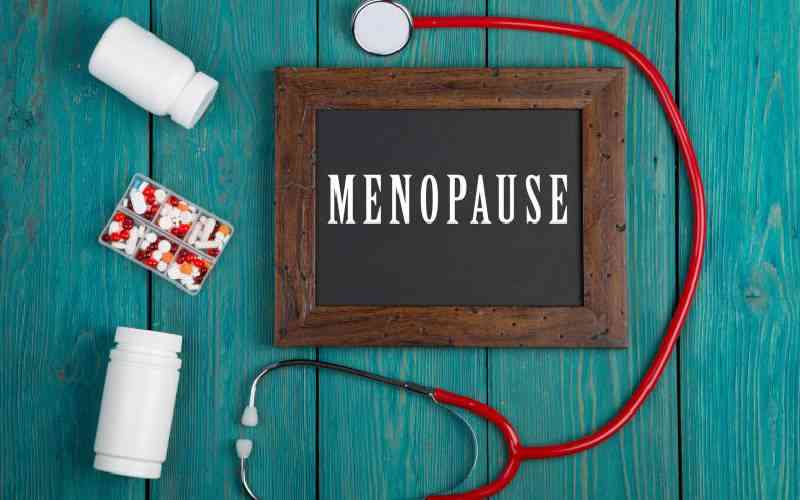Suba North MP Millie Odhiambo publicly revealed that she is going through menopause. [File, Standard]
While introducing Members of Parliament during the burial of Raila Odinga, Suba North MP Millie Odhiambo said: “…I have a disease called menopause that has caught up with me, so if I forget to mention you, don’t feel bad.”
The burial took place on October 19, just a day after the world celebrated World Menopause Day, which is dedicated to raising awareness about menopause.
Menopause, a word derived from Greek, simply means “cessation of the monthly cycle”. However, it is more complex than that. It is a hormonal storm raging through female bodies.
Follow The Standard
channel
on WhatsApp
Understanding that menopause is a natural part of biological aging is important in a country where ‘being menopausal’ is often used as an insult. We attach value to women’s ability to give birth — but that’s not the end of a woman’s life, neither does it devalue her.
Like many women’s conditions, menopause is widely misunderstood or misdiagnosed.
According to sources, there are more than 50 symptoms related to menopause, including sleep disturbances, mood swings, weight change, hot flashes, night sweats, vaginal dryness, and more. Menopause can last several years and affects the physical, emotional, mental and social well-being. Studies suggest that one out of 10 women is likely to quit their job due to menopause-related symptoms.
Lack of awareness often leads to distress, relationship issues, and neglect of women’s health needs. It is therefore important that we collectively educate ourselves. Knowledge fosters understanding, and understanding fosters empathy. It’s important for women leaders like Ms Odhiambo to speak openly about menopause on national platforms for several reasons.
It gives visibility to women’s health, which is often overlooked in public policy — especially the issues related to midlife and aging. Odhiambo brought the issue onto the national agenda, making it hard to ignore.
She turned a personal yet widespread experience into a national issue of dignity, awareness, and inclusion. Hers is a powerful reminder that women’s well-being belongs in public discourse — especially since women make up about 50.28 per cent of Kenya’s population.
Seeing a woman leader confidently talking about going through menopause normalises and validates women’s experiences and encourages others to speak up. It breaks the silence and reduces the stigma and misinformation that surrounds this natural transition.
During a recent conference on menopause, health experts called on the government to develop a clear framework on menopause — one that integrates access to healthcare and mental well-being. They also urged the creation of healthier, more inclusive workspaces that empower women to contribute to nation-building without battling shame.
Women’s bodies are not awkward spaces that should house silence. They are not taboo. It is not embarrassing to grow older.
When we keep speaking, we normalise. We create awareness, end shame, and build sustainable spaces where women show up unafraid — transitioning through all stages of life. We must stop weaponising natural processes against women.
Silence around women’s reproductive systems and illnesses only fuels stigma. Just as we are normalising period conversations and treating menstrual products as essentials, not smuggled goods, we must also bring menopause into public discourse.
No more hush-hush tones or euphemisms like ‘the change.’ Let’s also include younger women and girls in the conversation. Let’s include men for they are part of women’s lives in the workplace, at home, and society.
Women are the backbone of the nation, and menopause affects how they show up. Studies by the World Bank and the UNDP show that investing in women boosts education, health outcomes, and economic productivity.
For this to happen, women must unite across class and professions — from junior employees and high-ranking officials to leaders to those working at home or in the jua kali sector, share experiences and empower future generations. Let’s talk more about menopause.
Follow The Standard
channel
on WhatsApp
By Verah Omwocha
